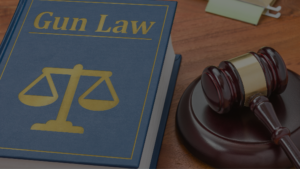
This week’s question comes from PZ who asks: “Hi, I discovered that the City of SF has deliberately put the public health at risk for quite some time. I would like to put something on the City of SF ballot placing restrictions on the City’s actions. I have never put anything on a ballot before. I have the following questions: 1) Can anyone, SF resident or not, get something on the ballot in SF; 2) how would I get started on this matter; 3) is there any agency or group of people that can help me?”
P.Z., Thanks for your question. I am glad to see you have an interest in direct action as part of our democracy. For those who are unfamiliar with the concept, local laws may be made through the Board of Supervisors which involves the board of supervisors introducing a piece of legislation called an ordinance. Ordinances require consideration at two separate meetings with at least five days intervening, a first reading and a final passage by six of the 11 Supervisors. The other way laws may be enacted is through the initiative process in the form of a ballot measure. Your question is one involving the initiative process. A lawyer with expertise in elections procedures should be consulted in any effort to pass an initiative as the requirements are both lengthy and exacting.
To qualify a Charter Amendment, Ordinance, or Declaration of Policy for the ballot, a person seeking to pass a law through the initiative process must submit an initiative petition, with a $200 filing fee to the Department of Elections. The City does not have a constitution: it’s foundation rests on the City’s Charter. A Charter Amendment is the equivalent of seeking a constitutional amendment. An Ordinance is a law and a Declaration of Policy is a statement of the official policy of the City. The initiative petition must be filed with a Notice of Intent to Circulate a Petition, the full text of the proposed measure and a request that the City Attorney prepare a ballot title and summary of the proposed measure. In lieu of the filing fee, the proponent may submit a petition containing valid signatures of 400 registered San Francisco voters.
The signature requirement for a proposed Charter Amendment is based on the total number of registered San Francisco voters at the time the proponent submits the Notice that equals or exceeds 10% of the total number of voters in the Department’s most recent official report of registration to the Secretary of State. For an Ordinance or Declaration of Policy the number is 5% of the votes cast for all candidates for Mayor at the most recent municipal election for Mayor. A proponent has a maximum of 180 days from the date of receipt of the City Attorney’s ballot title and summary to obtain all required signatures and file the petition with the Department. The Notice and the City Attorney’s ballot title and summary of the proposed measure must also be published in a newspaper of general circulation, like the Examiner.
The proponent must then gather signatures through a specific process. Any person who is 18 years or older may circulate a petition. Any eligible registered voter in San Francisco may sign a petition. For a voter’s signature to be valid, the voter must indicate a residential address on the petition that matches the address in his or her registration record. There are rules which the gatherer of signatures must follow including having the people gathering signatures be identified as volunteer or paid. Gatherers must agree, in writing, to be bound by the rules set forth by the Elections Department designed to prevent fraud or deception. The Department will then verify the signatures using one of several methods: a Raw Count (showing the number of signatures equals or exceeds the minimum number of signatures required) or a Random Sample for verification of signatures verifying no fewer than 500 signatures.
There are specific acts which petition signature gatherers are prohibited from employing so as to protect against fraud and deceit. They are too numerous to list here but include intentionally making any false statement concerning the contents, purport, or effect of a petition to any prospective signer, offering money for signatures, refusing the signer an opportunity to read the petition, etc.
If an initiative petition meets all legal requirements, contains a sufficient number of valid signatures, and is submitted to the Department within 180 days from the date of receipt of ballot title and summary and at least 120 days prior to an election, the measure will qualify for the ballot at that election.
The proponent them must file numerous materials which will be included in the Voter Information Pamphlet. The materials submitted for publication in the Voter Pamphlet are made available for public examination at the Department’s office for 10 calendar days immediately following the filing deadline. During this 10-day period, any San Francisco voter may seek a writ of mandate or an injunction to amend or delete the material on the grounds that the material is false, misleading, or inconsistent with the purposes of the Voter Information Pamphlet.
The Director of Elections then determines the title and letter designation of each measure, assigning letter designations according to the procedures set forth in the San Francisco Municipal Elections Code. No less than 85 days prior to the election, the City Attorney prepares an impartial question or general statement that will be printed on the ballot and in the Voter Information Pamphlet. Within the same 85-day period the Controller prepares an impartial financial analysis of each measure that includes the amount of any increase or decrease in the cost of City and County government and the effect of the measure on the tax rate.
The Ballot Simplification Committee prepares a fair and impartial summary of each local ballot measure in simple language, written as close as possible to an 8th grade reading level. Each summary, or “digest,” explains the main purposes and points of the measure and includes four sections: 1) The way it is now; 2) the proposal; 3) what a “Yes” vote means and 4) what a “No” vote means.
Proponents and opponents then have an opportunity to state their positions on the measure for inclusion in the Voter Pamphlet. Proponent, opponent, rebuttal, and paid arguments, if any, are submitted in favor of or against each measure
In general, a simple majority, or 50% of the total number of votes cast on the measure plus one, is required to adopt a Charter Amendment, Ordinance, or Declaration of Policy.
Most of this information was taken directly from the “Guide to Qualifying San Francisco Initiative Measures” published by the SF Department of Elections which is available online.
Finally, the date for the commencement of the process for this election passed on February 5th, 2018, so you will have to either seek a special election or wait for the next regularly scheduled election.









